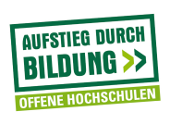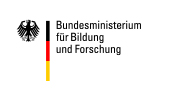Management Aspects of Systems Engineering I
Modulgruppe: Management-Aspekte
System Engineering is an interdisciplinary approach. This means that several specialist engineering disciplines and domain experts are involved in the system realization. Systems engineers establish an interaction and communication network with customers, users and stakeholders and other organizational units of the enterprise. They need to consider the complete life cycle of a system. This module invites you to learn more about the role of a systems engineer and the management of large projects.
Introductory Lecture:
- new dates will be announced
The Description of the module you find here.
- System and Systems Engineering Definition, System Hierarchy and Development Lifecycle
- Justification and Rationale for the Systems Engineering discipline i.e. managing complexity, effective communication and common understanding
- The role of the Systems Engineer and Systems Engineering Processes
- Typical Reviews (Quality Gates) in the development life cycle, and their objectives
- Requirements Engineering
- System Architecture
- Integration and Testing
- Project life cycle and development models
- The students will be able to explain the difference of a system in comparison to its system elements.
- They can describe the role of a systems engineer within a project organisation and his work areas.
- They will understand the importance of upfront analysis in order to avoid unplanned costs in later life cycle stages. He recognizes that communication, e.g. with specialist disciplines, is a fundamental element of the SE tasks.
- Student can analyse a system completely on a specific abstraction level considering the complete life cycle before advancing into deeper details towards implementation. He elicits requirements starting from the stakeholder needs, identifies possible solution architectures, performs trade studies and decomposes and allocates the requirements down the system hierarchy. They can apply different techniques to validate architecture, design and requirements
The online part of the study programme takes place in self studies and in form of group work. For the self study part video lectures with detailed information about the contents and an elaborated script is offered. The script is developed especially for extra-occupational learners in regard to the didactic concept of Ulm University. It contains learning stopps, multiple and single choice tests, quizzes, exercises, etc.
Your mentor will offer online seminars in periodic intervals. These seminars will help you handling the exercises and working on the learning matters. An online forum for exchange with the other students will also be available.
Requirement is a first graduate degree.
Recommended requirements:
- Desktop computer or notebook, with a supported version of Microsoft Windows, Apple macOS or Linux
- Headset
- Current version of Mozilla Firefox, Google Chrome, Apple Safari or Microsoft Edge
- Access to the internet (e.g., via xDSL, Cable, LTE, 5G) with a minimum data rate of 3 Mbit/s for downstream and 384 kbit/s for upstream.
In case of questions regarding the technical requirements, please don't hesitate to contact us.
Regular participation in online seminars will help you solving exercises, which have to be loaded up to the learning management system after request of the mentor. Passing the exercises successfully is recommended for participation in the final examination at Ulm University.
After finishing your exame successfully you will get a certificate and a supplement, which will list the contents of the module and the competencies you have acquired. In the supplement the responsible person for the module confirms you the equivalent of 6 credit points (ECTS).
Lecturers
Michael Leute
System Engineer bei Airbus
Sascha Ackva
System Architect bei Continental

Gefördert von:



